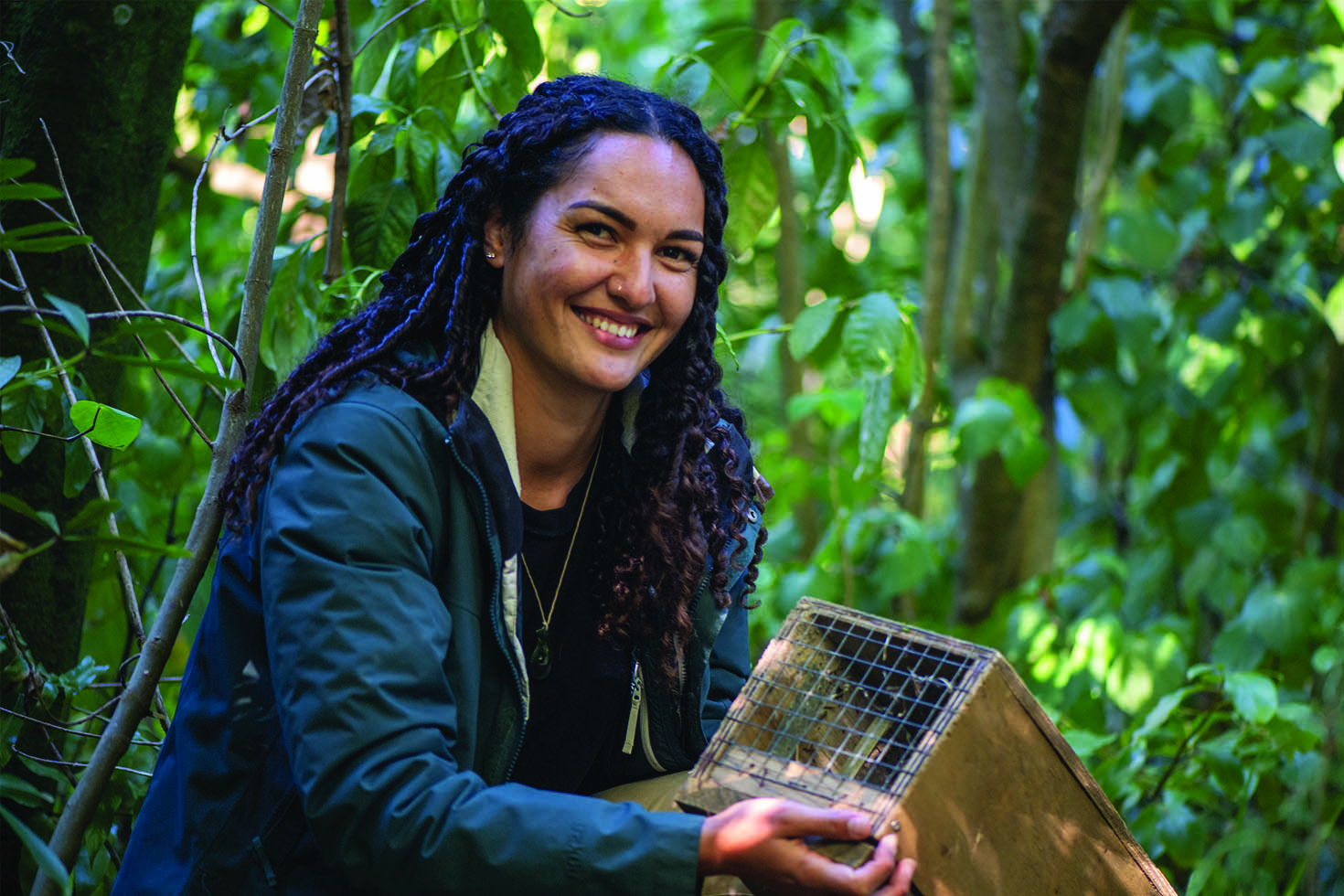
There wasn’t much being done to encourage indigenous perspectives in the conservation role I was in,” says Kiara.
“I wanted to go somewhere where I could find that.”
Kiara was drawn to the mātauranga Māori (Māori knowledge) focus of the programme, overseen by local iwi and taught on noho marae.
“Coming at it from a kaitiakitanga lens means you can delve deeply into the learning with people who know so much,” says Kiara. “Anyone really wanting to learn about conservation should do it this way.”
The programme, delivered by NMIT in partnership with the Department of Conservation (DOC), has been designed specifically with rangatahi in mind.
Te ao Māori is woven throughout, with tikanga me ngā uara (protocol and principles) an important part of the teaching.
Throughout the year, students spend time on Moturoa (Rabbit Island) learning about pest control, whakapapa of animals and their place in the ecosystem.
Gaining an understanding of how humans impact our ecosystem enables students to think about and work towards ways of re-establishing balance.
Working as a summer intern with the Department of Conservation, based in Motueka, Kiara enjoyed the varied work and challenges.
“It’s not just going outside and setting a trapline or picking up possums,” says Kiara.
“I organised a day out in the marine reserve for whānau from all over Te Tauihu which was a lot of work,” she says, “but going out on the day, and teaching whānau about the reserve and why we need to protect it, made it really worthwhile.”
Kiara says the support and guidance she received was a key part of her learning experience.
“I think the people I’ve met and got to know are now good friends, mentors and people I can hang out with.”
“I would really like to be the connection between Māori and revitalising our culture and conservation organisations.”


